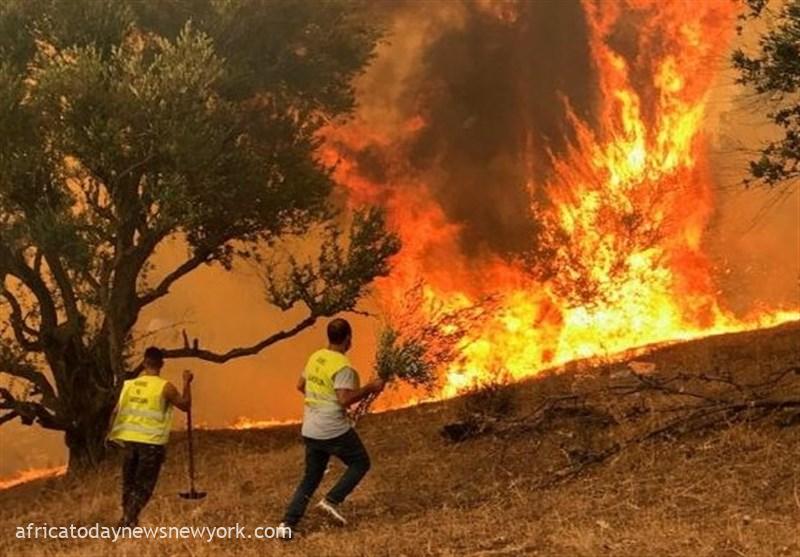No fewer than 30 people, including 10 soldiers battling the flames, have been killed by wildfires raging across Algeria which have also forced the evacuation of hundreds of people from their homes along the country’s Mediterranean coastal region.
The reports of the deaths came on Monday after temperatures hit 48 degrees Celsius (118 Fahrenheit) in parts of the North African country.
According to the interior ministry of Algeria, 97 fires spread across 16 provinces and were exacerbated by ferocious winds and scorching heat.
The ministry revised an initial death toll of 15 victims to at least 34, including 10 soldiers, as the fires tore through residential districts.
That original count indicated that at least 26 people were hurt as well.
Read Also: Spain Struggles With Wildfires In Northwest Region
The ministry said the fires forced the evacuation of some 1,500 people from the Bejaia, Bouira and Jijel provinces east of the capital Algiers. The three provinces in Algeria’s Mediterranean coastal region have seen the worst of the fires.
Meanwhile, President Abdelmadjid Tebboune offered his condolences to the families of the victims, both civilians and security personnel.
Africa Today News, New York reports that about 7,500 firefighters and 350 trucks aided by aerial support were battling to bring the flames under control across the country, authorities said, including in the Boumerdes, Tizi Ouzou, Jijel and Skikda regions.
Operations were under way to extinguish fires in six provinces, the interior ministry said, calling on citizens to “avoid areas affected by the fires” and to report new blazes on toll-free phone numbers.
‘Civil protection services remain mobilised until the fires are completely extinguished,’ it added.
The Bejaia prosecutor’s office has ordered a preliminary probe to identify the causes of the blazes and potential perpetrators, it said in a statement.
Fires raged again in a Tunisian pine forest near the border with Algeria, after another blaze in the area last week. At least 300 people were evacuated by sea and by land from the village of Melloula, according to the national guard.
In some other North African countries such as Morocco and Libya, temperatures were relatively normal compared with annual averages.
Scientists rank the Mediterranean region as a climate change “hot spot” with the United Nations Intergovernmental Panel on Climate Change warning of more heatwaves, crop failures, droughts, rising seas and influxes of invasive species.

